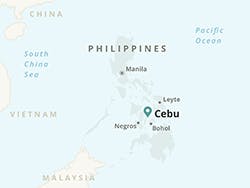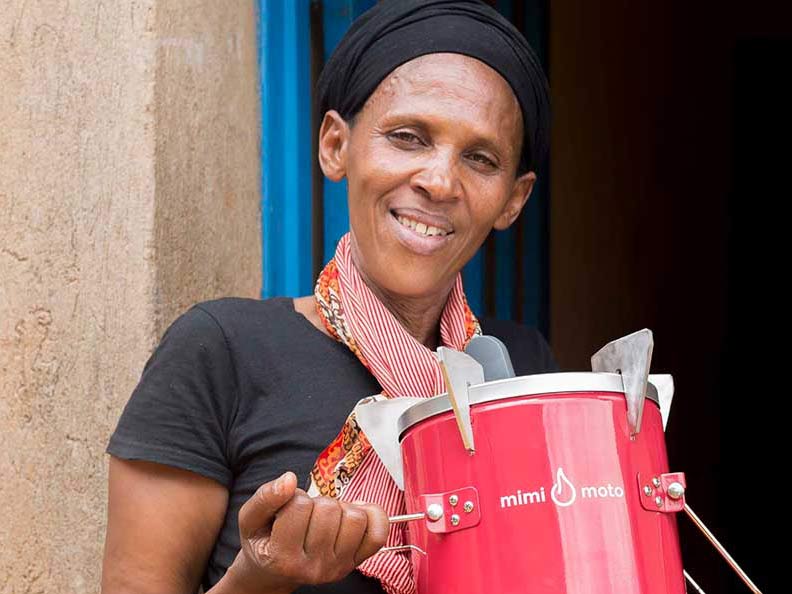About First Consolidated Cooperative along Tañon Seaboards (FCCT)

First Consolidated Cooperative Along Tañon Seaboards (FCCT) is an independent, multi-purpose cooperative (MPC) that was established in 1999. FCCT operates on the neighbouring islands of Cebu, Negros, and Bohol in the Central Visayas region of the Philippines and it promotes financial inclusion through providing loans and offering savings facilities to its members. FCCT is a Multi-Purpose Cooperative so in addition to providing financial services to its members, it also provides a number of non-financial services such as agricultural extension services, low-cost community shops, water filing stations and even education programmes for primary-age children. The majority of FCCT's members live in rural areas and are primarily engaged in farming and fishing, and retail and service provision. The organisation has a particular focus on promoting environmentally sustainable farming.
What is FCCT's mission?
FCCT's mission is "to provide ladders of socio-economic opportunities with programs geared towards ecological balance for the empowerment of low and middle-income households."
Meanwhile, the organisation's vision is to be: "An impressive-sustainable cooperative with vibrant socio-economic programs and services, empowered, resilient and environmentally compliant communities"
What types of financial services does FCCT provide?
FCCT specialises in providing loans and savings facilities to low-income sectors of the population, particularly women and people living in rural areas. FCCT provides a wide range of loans to individual members that start from as little as $53 to over $12,000. The majority of FCCT members request loans of less than $1,000 to be paid back over 1-36 months. FCCT members also have access to several different interest-bearings savings accounts, as well as remittance services. All members of FCCT must buy a minimum of one share (approximately $17) in the organisation in order to become a member and access member services. All members receive an annual share-out based on the number of shares they have in the organisation. In addition to financial services, FCCT provides a range of non-financial services to its members, including agricultural extension, marketing and low-cost consumer stores.
How much interest does FCCT charge?
Microfinance institutions (MFIs) charge higher rates of interest for several reasons. Firstly, the administrative costs of making many small loans are much higher than making fewer larger loans; secondly, they take more time assessing the feasibility of applications and thereby reducing risk because borrowers cannot offer traditional forms of collateral nor do they have salaried incomes; thirdly, MFIs often operate in geographically remote areas with low population densities and this means that they incur greater operational costs; and fourthly they often accompany loans with a range of training and technical advice. The most representative loan product of FCCT funded by Lendwithcare attracts an Annual Percentage Rate (APR)* of 31.58%.
*The Annual Percentage Rate (APR) is a standard way of expressing the cost of a loan that allows for comparison between loans. It includes annual interest, insurance, and fees that the borrower must pay, and is expressed as a percentage of the amount borrowed.
Does FCCT provide any training?
FCCT provides an impressive number of non-financial services to its members. These include providing technical assistance to their farmer members, marketing support and market-linkage, access to low-cost community shops and purified water, and subsidised schooling for pre-school and primary age children. FCCT also engages in a number of social outreach programmes such as tree planting and coastal clean ups, and agricultural training sessions with prisoners.
Where can I find out more information about FCCT?
Further information about FCCT is available from the organisation's website here.
FCCT: Basic facts and figures (June 2025)
Full name: | First Consolidated Cooperative Along Tañon Seaboards |
Established: | 1999 |
Average loan size: | US$759 |
Number of active loans: | 10,697 |
Outstanding loan portfolio: | US$6.5 million |
Portfolio at Risk (PAR) at 30 days*: | 8.37% |
Proportion of members who are women: | 72% |
Proportion of loans given in rural areas: | 79% |
*PAR30 is a commonly used metric that provides an insight into the quality of an MFI's loan portfolio, which is generally its major asset and therefore its greatest source of risk. It is computed by dividing the amount of delinquent loans greater than 30 days over the total amount of the loan portfolio.
Philippines: Basic facts and figures (August 2025)
Population: | 116 million* |
Currency: | Philippine peso* |
GDP per capita: | US$3,985* (compared with US$52,637 in the UK) |
Inflation (GDP deflator): | 3.2%* |
Life expectancy: | 70 years* |
Percentage of population living on less than $3.00 a day: | 5.3%* |
Human Development Index ranking: | 117 (of 193 countries)** |
Population using safely managed drinking water: | 48%*** |
Infant mortality rate (per 1,000 live births): | 22**** (compared with 4 in the UK) |
Percentage of adults with a bank account: | 56%**** |

We're proud to introduce a new way to support low-income families most at risk of climate change through Lendwithcare. Find out more about making a grant today.